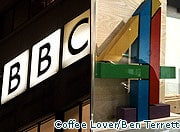A transsexual campaign group has been lobbying the BBC and Channel 4 in an attempt to get its agenda embedded in their content.
The group boasted that the BBC Diversity Unit “got it immediately”.
The news follows a recent report, commissioned by the BBC, which called for a boost in the number of homosexuals and bisexuals on TV.
Favourable
Trans Media Watch (TMW) has been in negotiations with both the BBC and Channel 4 in an attempt to force the broadcasters to portray transsexuals in a favourable light.
And in a startling admission of the influence which minority groups can exert on broadcasters Sarah Lake of TMW said: “As soon as we began comparing the way trans people are stereotyped in the media with that of LGB people and other minorities, both Stuart and Amanda Rice of the BBC Diversity Unit got it immediately.”
The claim is likely to concern many parents who have already expressed worries about the portrayal of homosexuality on the nation’s TV screens.
BBC
Last month a controversial report commissioned by the BBC said that homosexuals and bisexuals should be portrayed more frequently on the BBC.
However, the report also revealed that almost one in five viewers is either “uncomfortable” or “very uncomfortable” with homosexual scenes.
The official report, entitled Portrayal of Lesbian, Gay and Bisexual People on the BBC, also recommended that the corporation stop portraying stereotypes of homosexuals.
But according to the broadcaster’s own report more homosexual and bisexual viewers thought that the corporation’s portrayal of homosexuals was “realistic” than “stereotypical”.
Sex scene
The report also showed that two thirds of viewers would be uncomfortable with watching a sex scene between two men before the 9pm watershed, and almost half said that they would rather not see two men kiss.
Even after the watershed more than one in five viewers, some 21 per cent, said they were uncomfortable with seeing two men holding hands.
And earlier in September figures released by the Office for National Statistics showed that that just one per cent of the population were homosexuals, and just 0.5 per cent of the population were bisexuals.

